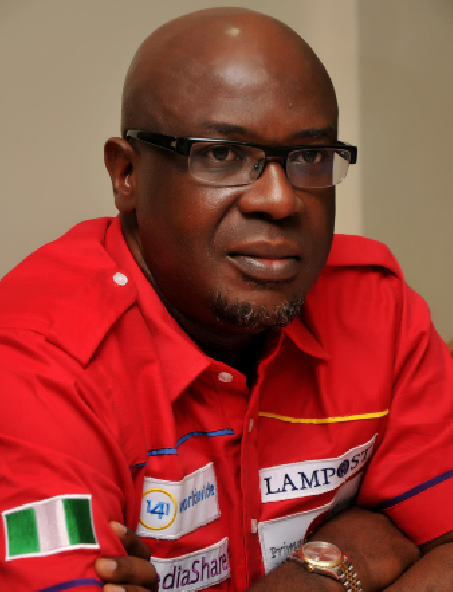Like many of his colleagues, he believes that for 2016 to offer a glimmer of hope the government must reflate the economy.
Though it is still early days, industry practitioners and other stakeholders have began to offer their concern particularly as government is yet to set any form of agenda that could improve the economy.
Akinwunmi said two challenges shaped 2015 and these are clients literally stopped spending, and when they did, they did not pay on time or at all.
These scenarios are likely to play out in 2016 but stakeholders strongly believe that the long wait for an improved IMC industry as well as the economy may pay off eventually.
Not election year
Unlike 2015 that was christened election year hence the slow start to every IMC, 2016 began albeit slowing with brands and organisations watching who to make the first start.
While some agreed that 2015 general election contributed hugely to the negative bottom line most brands and agencies recorded, others believed it was actually a blessing to some agencies.
Akinwunmi said agencies were active as the political parties and candidates ran very expensive campaigns.
“On the contrary, the election produced some impetus. Agencies were active as the political parties and candidates ran very expensive campaigns. For many agencies it’s a life saver,” he added.
Association of Advertising Agencies of Nigeria (AAAN) President, Kelechi Nwosu, reasoned with Akinwunmi on the challenges of last year, but said “the problem, I believe, is not just about the election even though the election masked it.
“The fundamentals including inclusive, diversified growth were wrong. Also the electioneering campaigns were not run mostly by the AAAN agencies leading to a loss of potential revenue to the agencies.”
For former Experiential Marketers Association of Nigeria (EXAN) President, Kayode Olagesin, last year was a bag of mixed grill, different strokes for different folks.
Said he: “Those who were able to participate in political advertising for the 2015 elections across sectoral groups started the year on a bright note although it started extremely slowly for others.”
“Generally, however, it has been a slow year. A number of major advertisers did not do much in the first two quarters of the year due to uncertainty concerning the elections.
“The uncertainty in terms of policy direction also curtailed spending in the second half of the year but it was an improvement on the first half.”
Anxiety
Organisations in IMC have been living on the edge. From banking to manufacturing, there is no clue as to what would happen next. Several factors have combined to deal the industry almost a deadly blood.
According to industry sources, the treasury single account (TSA), Central Bank of Nigeria (CBN’s) foreign exchange (forex) policy, and dwindling oil price on the international market are some of the factors that have put the industry under huge pressure.
TSA has forced banks to be cautious with limited funds. Unlike in the past when organisations accessed facilities from financial institutions with ease, the new administration policy to curb corruption has made everyone to sit up.
The forex policy has continued to put pressure on foreign companies and multinationals that depend on parent organisations to fund their marketing communication activities.
This has resulted in companies moving to neighbouring countries such as Ghana, Benin Republic.
L’Oreal, manufacturers of cosmetics, skincare, hair colour and hair care products, recently moved its West African office from Nigeria to Ghana because of forex challenge.
These challenges have also led to massive jobs cut in financial institutions, manufacturing, service companies and, recently, oil companies with Shell Nigeria announcing lay offs.
In the advertising industry, agencies in creative advertising, public relations, experiential marketing media, independent and outdoor advertising are planning staff retrenchment as result of low activities.
This has created tension among the major stakeholders.
Predictions
Lamenting the increasing downward trend of oil price, Akinwunmi urged the government to reflate the economy one way or another.
“It’s a pity that oil price is very low. Most likely the government will have to borrow to fund the activities which will put some life back into the economy,” he counselled.
“Hopefully anytime from the end of the first quarter we should see some gradual revival in the economy. Otherwise it may be another very tough year as we try to manage our recovery.”
Nwosu added: “I am optimistic that we have gone through the lowest point in the economy. I am also optimistic that this government will allow only APCON licensed agencies to work for it.
“The IMC industry and the entire country must brace up and be courageous to pass through a transitional tough period. It is apparently not just what happens, but how we react to the tough period is what matters.
“We need to put in a better and bolder creativity into governing for governments and into business for companies to ensure better growth.”
Olagesin stressed that the operating environment is not all gloom.
His words: “The government has promised an unprecedented budget of about N6 trillion based on a zero budget approach. We are going to see more spending on capital projects as well as provision for welfare packages for the most venerable citizens.
“An early presentation of and passage of the budget with a focused implementation may well provide the stimulus the economy requires. If this halts the steady decline of growth rate now under 3 per cent then we can build on that.
“If the current gale of job losses is reversed and more jobs are created we should see improved consumer spending which will also impact spending in our industry.
“One should approach the year with optimism and devise strategies to address the different scenarios the year may present.”
Public Relations Consultants Association of Nigeria (PRCAN) Vice President, Muyiwa Akintunde, said increasing interest in Nigeria by global businesses portends a lot more activities for the industry.
But, he added, the regulatory authorities must not relent in their determination to ensure that foreign agencies and their local collaborators comply with the laws of the land.




